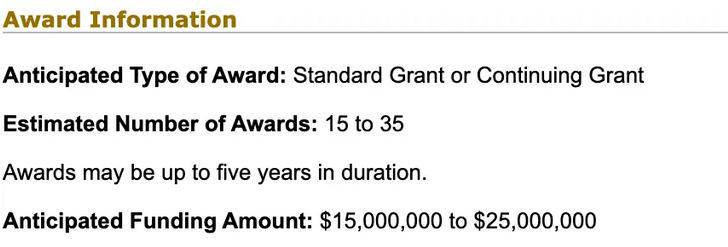By any conventional definition, gambling is not a public-health issue. It is not an infectious disease. It is not an environmental hazard. And its association with poor health is tenuous and indirect. Losing a lot of money might be bad for your health in some way. But if that is the argument, you might as well redefine compulsive shopping or stock trading as public-health issues, too.
Nevertheless, the public-health lobby is keen to take over this area of policy and PHE ended its days with the following conclusion: “The evidence suggests that harmful gambling should be considered a public-health issue because it is associated with harms to individuals, their families, close associates and wider society.”
By this definition, anything that can cause harm to individuals and / or other people is a public-health issue. This would make every health problem and most social problems public-health issues. It spreads the net across such a vast expanse of human behaviour that it renders the term “public health” totally meaningless. Still, this is very much in keeping with the mission creep of a sector that claims everything from poverty and war to housing and climate change can be public-health issues.
It can be argued that almost everything has an effect on health, but what is the point of making everything a public-health issue? What expertise do people with a masters in public health have that makes them better at solving complex social and economic problems than anyone else? And as we saw during the pandemic, when the public-health lobby spreads itself too thinly, it becomes incapable of doing its day job. The World Health Organisation and Public Health England, for instance, were both far more interested in pushing for nanny-state interventions than in preparing for pandemics.
But if we see the modern public-health movement for what it really is – a paternalistic, bourgeois crusade for moral reform – it becomes obvious why gambling is in the crosshairs. A classic target of puritans, gambling will fit in well alongside the other supposed public-health “epidemics” of our age: gluttony, sloth, smoking and the demon drink. It wouldn’t surprise me if usury and lust were its next targets.
Christopher Snowdon, “No, gambling is not a “public health” issue”, Spiked, 2022-08-25.
November 27, 2022
QotD: Gambling is not a “public health” issue
November 6, 2022
The ArriveCAN farce as the poster child for Canada’s vastly diminished state capacity
In The Line, Andrew Potter considers the expensive, ineffective ArriveCAN app the government tried to impose on international travellers as a symptom of Canada’s decreasing state capacity:
There is perhaps no clearer poster child for the current crisis of state capacity than the ArriveCAN app, which was a bad policy initiative, poorly implemented, at great cost, and whose ultimate effect was not to keep Canadians safe and healthy, but rather to annoy users and generate a great deal of hostility towards the government.
The question of state capacity (or more frequently, its absence) became an issue of popular concern during the COVID-19 pandemic when governments, both in Canada and elsewhere, struggled to accomplish basic tasks of pandemic management. Whether it was sourcing enough PPE for the health-care system, scaling up testing or contact tracing, securing the borders, properly staffing long-term-care facilities, taking care of temporary foreign workers, and so on … the authorities struggled to get their act together. This is a well-documented story.
But this all came at a time when we had already started a national conversation about whether Canada had become a place where it was impossible for government to get anything done. Pipelines were the big issue, but we seemed to have turned into a country where crumbling infrastructure and slow and ineffective public services had become simply accepted as a fact of life. “State capacity” just put a name to something that had been in the air for a long while.
And so the pandemic served to both exacerbate and accelerate the concern over state capacity, for two main reasons. First, it raised the stakes. Before the pandemic, the failure of state capacity manifested itself as a slow-motion and genteel sort of generalized decline. With the arrival of COVID-19, it quickly became a matter of life and death. But second, the gusher of money the government printed during the pandemic helped put a point on the problem: the problem didn’t originate in a lack of funds. Indeed, what transpired during the pandemic was a bit of a spin on the old Woody Allen joke about the restaurant with terrible food and such small portions: There was so much government, and so much of it was bad.
So what is state capacity anyway? And why is it so important?
As I’ve said many times, the more the government tries to do, the less well it does everything. More government is worse government … and I’m not even being a pedantic libertarian here, I’m talking objectively about the outcomes of pretty much every new government action.
October 21, 2022
“The function of elected officials in California is the performance of symbols, the narcissistic status dance”
Chris Bray on the essentially performative nature of law-making in California:
That mayor is gone, now, but her rotating crop of replacements aren’t noticeably more committed to the quotidian reality of the city, 3.4 square miles of crumbling streets. They’re busy with the climate action plan, and with their very very serious regional outreach to achieve social justice and climate justice and, you know, something something justice something. They are performing their symbols.
So start with this premise: The function of elected officials in California is the performance of symbols, the narcissistic status dance.
Doing just that, the bumbling halfwit Richard Pan, a pediatrician turned Big Pharma water-carrier, has succeeded in the passage of his “disinformation” bill, AB 2098. Here’s how the legislative counsel explains the bill:
Existing law requires the applicable board to take action against any licensed physician and surgeon who is charged with unprofessional conduct, as provided.
This bill would designate the dissemination of misinformation or disinformation related to the SARS-CoV-2 coronavirus, or “COVID-19,” as unprofessional conduct.
But, as Igor Chudov notes, the bill — now the law — defines away its purpose, declaring that misinformation is “false information that is contradicted by contemporary scientific consensus contrary to the standard of care”. (And disinformation, the law says, is merely misinformation spread with “malicious intent”, disagreeing with the consensus plus being mean and bad.)
Being a longtime admirer of Richard Pan’s unique mind, I adore the definition of falsehood as something contrary to the consensus. It’s true, you moron, ’cause lots of people believe it! (The earth is at the center, and the sun revolves around it! Go to your room!) But back to Chudov’s good catch: The law evaporates if you can show that the consensus isn’t, and European public health regulators, among others, are doing that work. So if a doctor violates the consensus by telling a patient that the mRNA injections don’t prevent infection or transmission … okay, hold on a second.
So Senator Pan wishes to burn the witch, but he defines “witch” in such pudding-soft language that he gives the witch-burners nowhere to stand without sinking and vanishing. His declared purpose evaporates in the sloppiness of his mind. But he gets the symbol, declaring that he has declared that the witch should be burned. He gets his tweet.
QotD: The real reason for Upton Sinclair writing The Jungle
In 1906, Upton Sinclair came out with his book The Jungle, and it shocked the nation by documenting the horror of the meat-packing industry. People were being boiled in vats and sent to larders. Rat waste was mixed with meat. And so on.
As a result, the Federal Meat Inspection Act passed Congress, and consumers were saved from ghastly diseases. The lesson is that government is essential to stop enterprise from poisoning us with its food.
To some extent, this mythology accounts for the wide support for government’s involvement in stopping disease spread today, including Covid and the catastrophic response.
Not only that, but the story is also the basis for the US Department of Agriculture’s food inspection efforts, the Food and Drug Administration’s regulation of medical drugs, the central plan that governs food production, the Centers for Disease Control and Prevention, and the legions of bureaucrats who inspect and badger us every step of the way. It is the founding template for why government is involved in our food and health at all.
It’s all premised on the implausible idea that people who make and sell us food have no concern as to whether it makes us sick. It only takes a quick second, though, to realize that this idea just isn’t true. So long as there is a functioning, consumer-driven marketplace, customer focus, which presumably includes not killing you, is the best regulator. Producer reputation has been a huge feature of profitability, too. And hygiene was a huge feature of reputation — long before Yelp.
Sinclair’s book was not intended as a factual account. It was a fantasy rendered as an ideological screed. It did drum up support for regulation, but the real reason for the act’s passage was that the large Chicago meat packers realized that regulation would hurt their smaller competitors more than themselves. Meat inspections imposed costs that cartelized the industry.
That’s why the largest players were the law’s biggest promoters. Such laws almost have more to do with benefiting elites than protecting the public. It was not really about safety, the best scholarship shows, but exclusionary regulation to raise competitors’ costs of doing business.
Jeffrey A. Tucker, “Poke and Sniff: A Lesson from 1906”, Brownstone Institute, 2022-06-29.
October 20, 2022
Canadian firearms law – as deliberately opaque and confusing as the human mind can concoct
In The Line, Tim Thurley peels back the covers and provides a glimpse of the inanities, stupidities, and political opportunism that shape Canadian firearms legislation:

A typical arrangement of guns seized by Toronto Police back in 2012. Most of these weapons would be in the “restricted” or “prohibited” categories under the Firearms Act, and pretty much by definition not typically available to the majority of Canadians.
Canadians often assume our government is doing its best. Not the politicians, sure, but there is a broad assumption that at least the bureaucrats tirelessly working behind the scenes to implement political decisions must have a grasp on the facts and exhibit some consistency in decision-making. In few places is there a larger discrepancy between this perception and the grimmer reality than in how the government classifies firearms.
I’ve long had an interest in firearms policy. Those familiar with it will know how onerous the Access to Information process is and wonder why I partake on my own time and dime; I can answer only that a graduate M.Sc. thesis on legislative impacts on firearm homicide and time working in politics and government have made me a glutton for punishment. More seriously, it’s a fascinating field, and I have some insight into political and policy processes. And as any specialist in a hot-button policy area knows, there is nothing more frustrating than seeing bad policy enacted in your field again, and again, and again.
Firearms are classified into three categories under the Firearms Act: non-restricted, restricted, and prohibited. All three require a separate level of licence, obtained with escalating difficulty after multiple courses and checks. (Prohibited licences are no longer issued to the regular public, but some Canadians hold them as part of a grandfathering in of prior licence holders.) Each category is primarily determined by firearm design. A simple overview: restricted firearms are some rifles and most pistols, prohibited firearms are shorter-barrelled pistols or fully automatic (or converted to another mechanism therefrom), and non-restricted firearms are anything else meeting the legal definition of a firearm, typically meaning typical hunting rifles and shotguns.
That’s a simplified version, but that’s the system.
In theory.
In practice, as my requested documents confirmed, firearm classification in Canada is an opaque and byzantine nightmare. A messy plethora of firearms which meet the functional criteria for being non-restricted, subject to the least stringent oversight and controls, are prescribed by regulation as either restricted or prohibited, and therefore subject to more controls or outright banned. Since functional differences are accounted for by law and did not apply in these cases, the deviations must have another explanation.
In short, politics.
Take the 2020 Nova Scotia attacks. Despite the unlicensed murderer smuggling his firearms from the United States, the Liberals took the opportunity to issue an executive Order-in-Council that banned a bunch of legally owned Canadian guns mostly because it was an easy wedge for the next election. The facts of the case were irrelevant, as was the fact that the banned firearms were responsible for a minuscule fraction of Canadian homicides. The government did not even bother writing the ban by how the firearms functioned, which while unhelpful from a homicide-reduction perspective, would have at least been a coherent position. The order, among other things, simply identified a few well-known guns by name and banned those.
This is where the concept of “variants” matters. When a firearm is designated by regulation as restricted or prohibited, the designation includes all variants of the firearm, which then receive the same classification. This makes sense. Ridiculous as classifying firearms by name over function already is, it would be yet more ridiculous if a mere renaming by a manufacturer, for instance, was sufficient to evade a legal classification.
Most ridiculous of all is that the public does not and cannot know what constitutes a “variant”. The Firearms Act does not define it. The Canadian government does not define it. Nor do its agencies, even the one responsible for determining variants: the Royal Canadian Mounted Police.
The Mossberg Blaze 47 saga is illustrative of this problem. It is uncontroversial to assume that a precise mechanical copy of an original Russian AK-47 with a different name and slight design changes is still an AK-47. But when Mossberg, the manufacturer, slapped a plastic frame bearing some resemblance to Kalashnikov’s famous design on its Blaze rifle — a cheap, non-restricted, rimfire rifle suitable for, at worst, a particularly aggressive colony of rabbits — that new gun, dubbed the Blaze 47, somehow transformed from an unthreatening small-game rifle to a dangerous AK-47 variant prohibited under Former Prohibited Weapons Order No. 13.
The amazing transformation of a simple .22LR plinker into a facsimile of a dangerous “black fully semi-automatic murder machine”.
These head-scratching decisions have confused firearm owners and manufacturers, who wasted decades trying to understand how the government decides to classify their guns. It all seemed very random.
Surprise! It is!
QotD: “Medical gaslighting”
“Medical Gaslighting” Is The New Term For When Doctors Tell People There’s Nothing Wrong With Them: “Medical gaslighting” is common, especially among women.
Of course, sometimes doctors will be wrong, because in my experience most of them are not great diagnosticians. And it will usually involve women because women visit doctors with complaints much more often than men. But “medical gaslighting” imports a notion of bad faith instead of error. It’s the medical version of “believe all women”, and you know how well that turned out …
Glenn Reynolds, Instapundit, 2022-07-17.
October 16, 2022
October 4, 2022
“… apparently the future of science is BAJEDI (Belonging Accessibility Justice Equity Diversity and Inclusion), which is quite a bit cooler than mere DEI”
And you thought the stuffy old National Science Foundation was only supporting pale, stale, cisgendered white male research? Think again!
I’ve written many times about the National Science Foundation and its increasingly politicized conception of “science”. As an independent federal agency with a nearly $9 billion budget, the NSF is a behemoth in the world of academic science, shaping research agendas and the future of the professoriate. And apparently the future of science is BAJEDI (Belonging Accessibility Justice Equity Diversity and Inclusion), which is quite a bit cooler than mere DEI. Here’s a current funding opportunity for scientists:
The federal agency that funds research projects like “Probing Nucleation and Growth Dynamics of Lithium Dendrites in Solid Electrolytes” is moving hard into the business of social justice, with career-making grants that will focus STEM researchers on the problem of racial grievances. Here’s how much money is available for that racial equity program:
The premise underlying this turn toward equity-focused science projects is that “science scholars who are underrepresented in STEM produce higher rates of scientific novelty”. Innovation is grounded in race and ethnicity; the more gloriously intersectional you are, the more creative you become. Imagine the boldness of a transgendered Asian Pacific Islander astrophysics, and how much newer and fresher our conception of the universe is when it doesn’t come from straight white males.
And so the NSF wants to fund “diversity champions” who will freshen up our science with BIPOC innovation — which means adding more sociologists to the team of geophysicists: “When developing proposals, the PI team should acknowledge the need for increased engagement from social and behavioral science experts to address issues related to BAJEDI in the geosciences and include these best practices and experts in proposed projects.” […]
It’s a real cultural revolution in the world of academic science.
September 28, 2022
This Is Why We Can’t Have Nice Infrastructure
Kite & Key Media
Published 31 May 2021America is a land of constant progress. Sometimes it seems like there’s nothing we can’t accomplish. And then we try to build something…
In recent years, infrastructure projects have taken way too long and cost way more than they should. Boston’s “Big Dig”, for example, took 15 years and cost more than 5x as much as projected. California’s High-Speed Rail was supposed to run between L.A. and San Francisco by 2020. Instead, some track nowhere near either city might be ready by 2027.
Why can’t America build quickly or cost effectively anymore? A well-intentioned regulatory law from the 1970s has a lot to do with it…
When the National Environmental Policy Act (NEPA) first took effect in the 1970s, the environmental impact analysis it required from builders before a project could begin would often run less than 10 pages. Today, the average is more than 600 pages.
Maybe delays and ballooning costs are worth it to protect the planet, right? Here’s the crazy part: NEPA doesn’t even guarantee that. In some cases, it’s actually making us less green.
(more…)
September 10, 2022
“Things have gone horribly wrong in American medicine; for example, ‘physicians are sharing ideas'”
Chris Bray on the American healthcare system’s descent into not just “rule by experts” — which you rather expect for a field like medicine — but the far worse “rule by government-approved experts”:
Our $3.7 trillion medical system is characterized by its fragility, the narrative says, with patients who can’t get treatment and doctors who can’t learn. So what’s gone wrong? Here’s the headline, with a whole universe of silly assumptions baked into every word:
Things have gone horribly wrong in American medicine; for example, “physicians are sharing ideas”.
I’m just taking a moment to stare at my own sentence. Be right back.
Anyway, medicine is broken — doctors are thinking. Sick people show up to see them, and they try to figure it out themselves by using, like, evidence and diagnostic practice and their medical knowledge. Lacking government directives, physicians are living with a horrible system in which they have to assess sick people and come up with their own answers about their illnesses and the best course of treatment. And so, Politico reports, networks of doctors are gathering to share data and work collaboratively, a sure sign that things have gone horribly wrong:
While the network is helping patients and doctors navigate the disease’s uncharted waters, long Covid doctors say there’s only so much they can do on their own. The federal government should be doing more, they say, to provide resources, coordinate information sharing and put out best practices. Without that, the doctors involved fear the condition, which has kept many of those afflicted out of the workforce, threatens to spiral.
Imagine what doctors will be like after two more generations shaped by the assumption that the federal government is the only proper source of “best practices”. The pathologization of socially and institutionally healthy behavior — professionals, confronted with a new problem, work together to gather evidence so they can analyze and apply it — speaks to the ruin inflicted by the pandemic, by the federal funding and steering of science, and by the Saint Anthonying of medicine: If government doesn’t tell you how, you can’t possibly know how. You expect your doctor to use a lifetime of education and experience to figure out what’s wrong with you; Politico expects your doctor to apply the government guidelines, but finds to its alarm that the government doesn’t offer any. How can you make a sandwich if the government hasn’t published a protocol on the application of condiments?
If you’ve felt rigidity and a lack of productive exchange in your conversations with your own doctor, we may have a suggestion here about the why part. I can’t assert that with total confidence, because the federal government hasn’t provided me with an analytical framework.
And so the debilitation of people who should have professional knowledge and competence becomes normal and expected. A scientist is someone who gets checks from the NIH, unless the scientist is one of the other kind and gets checks from the NSF, and ideological compliance is part of the deal. A doctor is someone who applies the government protocols. Federal agencies wear your doctors like a skin suit, and apply their medical solutions through the hands of others. If that’s not how it works — if your doctor works in creative and thoughtful ways to make sense of an illness and provide an effective treatment — something has gone wrong.
QotD: “Working toward the Führer“
Sir Ian Kershaw was broadly right about how the Third Reich operated. He says Nazi functionaries were “working towards the Führer“. In other words, the Führer — the idealized, mythologized leader, not Adolf Hitler the individual — made it known that “National Socialism stands for X“. Hitler was famously averse to giving direct orders, so that’s often the only thing big, important parts of the government had to work from — the Führer‘s* pronouncement that “National Socialism means X“. It was up to them to put it into practice as best they could.
This had several big advantages. First, it’s in line with Nazi philosophy. The Nazis were Social Darwinists. Social Darwinists hold that “survival of the fittest” applies not only to humans as a whole, but to human social groups as well. Any given organization, then, must exist to do something, to advance some cause, to reach some goal. Ruthless competition between groups, and inside each group, is how the goal works itself out (you should be hearing echoes of Hegel here). The struggle refines and clarifies what the group’s goal is, even as the individual group members compete to reach it. The end result gets forced back up the system to the Führer, such that, dialectically (again, Hegel), “National Socialism means X” now encompasses the result of the previous struggle.
[…]
As with philosophy, “working towards the Führer” fit well with German military culture. Auftragstaktik is a fun word that means “mission-type tactics.” In practice, it delegates authority to the lowest possible level. Each subordinate commander is given an objective, a force, and a due date. High command doesn’t care how the objective gets taken; it only cares that the objective gets taken. Done right, it’s a wonderfully efficient system. It’s the reason the Wehrmacht could keep fighting for so long, and so well, despite being overpowered in every conceivable way by the Allies. The Allies, too, were constantly flabbergasted by their opponents’ low rank — corporals and sergeants in the Wehrmacht were doing the work of an entire Allied company command staff (and often doing it better).
Consider the career of Adolf Eichmann. In the deepest, darkest part of the war, this man pretty much ran the Reich’s rail network. Say what you will about the Nazi’s plate-of-spaghetti org chart, that’s some serious power. He was a lieutenant colonel.
The final great advantage of “working towards the Führer” is “plausible deniability”. Let’s stipulate Atrocity X. Let’s further stipulate that we’re in the professional historian’s fantasy world, where every conceivable document exists, and they’re all clear and unambiguous. It’s a piece of cake to pin Atrocity X on someone … and that someone would, in all probability, be a corporal or a sergeant. Maybe a lieutenant. What you wouldn’t be able to do is trace it up the chain any higher. Everyone from the captain to Hitler himself could / would give you the “Who, me?” routine. “I didn’t tell Sergeant Schultz to execute those prisoners. All I said was to go secure that objective / defeat that army / that National Socialism means fighting with an iron will.”
*I’m deliberately conflating them here — to make it clearer how confusing this could be — but in talking about this stuff the terminology is crucial. Adolf Hitler, the man, played the role of The Führer. What Hitler the man wanted was often in line with what the Führer role required, of course, but not always. This is one of the footholds Holocaust deniers have. Did Hitler-the-man actually put his name to a liquidation order? No. Did Hitler-the-man actually want it to happen? Unquestionably yes, but like all men, Hitler-the-man vacillated, had second thoughts, doubted himself, etc., and you can find documented instances of that. But The Führer very obviously wanted it to happen, and it was The Führer that motivated the rank-and-file. The man created the role, but very soon the role started playing the man …
Severian, “Working Towards the Deep State”, Rotten Chestnuts, 2020-01-06.
September 6, 2022
Fixing the American education system (other than burning it to the ground and starting over)
At First Things, M.D. Aeschliman reviews The Knowledge Gap: The Hidden Cause of America’s Broken Education System — and How to Fix It by Natalie Wexler:
E.D. Hirsch Jr., distinguished scholar of comparative literature, is the most important advocate for K–12 education reform of the past seventy-five years. Natalie Wexler’s recent book The Knowledge Gap is a helpful examination of Hirsch’s critical analyses and intellectual framework, as well as the elementary school curriculum that he designed — Core Knowledge.
One of Hirsch’s key focal points is the vapid, supposedly “developmentally appropriate” fictions that dominate language arts curricula in elementary schools — mind-numbingly banal stories with single-syllable vocabularies and large pictures. These silly literary fictions and fantasies have helped “dumb down” a hundred years of American students by eliminating or forbidding any substantial reading of expository prose about history and science in the first eight grades. A poignant narrative well worth reading is Harold Henderson’s Let’s Kill Dick and Jane, which details a noble but ultimately losing fight waged by a family firm from 1962 to 1996 against the big textbook publishers.
After a teaching career of fifty years, I agree with Hirsch that the primary problem in American public education is not the high schools, but the poorly organized, ineffective elementary school curricula, including the idiotic books of childish fiction. As Wexler writes, the governing “approach to reading instruction … leaves … many students unprepared to tackle high-school-level work”. Pity the poor high school teachers.
A hundred years ago John Dewey and his lieutenants from Columbia Teachers College, especially William H. Kilpatrick, started dismantling academic “subjects” in favor of “the project method”. They also worked to redefine history as “social studies”, a degenerative development that has continued without cease in our K–12 schools, leading to ludicrous presentism. Dewey and the progressives also attacked traditional language classes — especially phonics but also Latin — opening the way for “naturalistic” literacy instruction that has proved to be ineffective. Yet it should be obvious that students must “learn to read” well early on so as to “read to learn” for high school and college and the rest of their lives. And what they read early on is important.
The “progressive” educational assault on traditional American education had another source, which might be called “soft utopianism”. Twenty-five years ago Hirsch was already writing powerfully — in The Schools We Need and Why We Don’t Have Them — about this romantic-progressive “soft utopianism” and how it conflicted with what is wisest and best in the thinking, writings, and achievements of the founding fathers and their early republic. Yet he also knew — as himself a repentant progressive “mugged by reality” — that in the nineteenth century the republican educational legacy was already under intellectual assault by Rousseau’s American disciples Emerson, Thoreau, and Walt Whitman. Whitman’s egalitarian naturalism was one of Dewey’s greatest inspirations by the early twentieth century.
The progressives particularly dislike history, and our current “Great Awakening” indicates this. A few years ago, the former superintendent of the school system of one of our most “liberal” states said to me in private conversation that “the progressives hate history and won’t tolerate it in the curriculum”. They hate it because any thinking about history requires ethical assumptions and qualitative judgments: What in the past is worth studying? How do we structure our narratives? How do we fairly evaluate historical personalities and events? Which ones were virtuous and beneficial? These and related questions require some standard of justice and the idea that most individuals — in the past and present — have some degree of free will and some disposition to ethics: the “self-evident truths” of our founding document, and of civilization itself.
September 5, 2022
QotD: Why bureaucracies are inherently slow
It is important to remember that all government law enforcement agencies are bureaucracies. And all bureaucracies have certain behavioral tendencies owing to their institutional structure and the incentives that structure generates.
The great economist Ludwig von Mises analyzed these tendencies and incentives in his 1944 book Bureaucracy.
In that book, Mises identified “slowness and slackness” as among the inherent features of government bureaucracy that no reform can remove.
We have all experienced the “slowness and slackness” of government bureaucracy: with the post office, the DMV, the public school system, etc. That’s why the animated movie Zootopia had sloths working at the DMV and everyone got the joke. And police bureaucracies are no exception to this reputation.
Why is this so? In part, it is due to another indelible feature of bureaucracy: that it is, as Mises wrote, “bound to comply with detailed rules and regulations fixed by the authority of a superior body. The task of the bureaucrat is to perform what these rules and regulations order him to do. His discretion to act according to his own best conviction is seriously restricted by them.”
Sometimes a delay is simply due to the fact that the government employee is too tied up in red tape to respond in a timely manner. The timely response may be outright prohibited by the rules. Or the delay may be owing to Kafkaesque procedural mazes that first must be navigated or chains of command that must be climbed for permission.
[…]
Again, Mises considered such features of bureaucracy to be unreformable. Why? He argued that it is the only way that a government bureaucracy can be made at all accountable to the public. A bureaucrat with a free hand is even more dangerous than a bureaucrat with his hands tied.
“If one assigns to the authorities the power to imprison or even to kill people,” Mises wrote, “one must restrict and clearly circumscribe this power. Otherwise the officeholder or judge would turn into an irresponsible despot.”
Dan Sanchez, “How Bureaucracy May Have Cost Lives in Uvalde”, Foundation for Economic Education, 2022-05-31.
September 2, 2022
US Navy to get its very own Zampolit cadre
CDR Salamander reports on the latest politically correct doings at the US Naval Academy, which he points out always filter down to the active duty fleet, both good and bad … and I don’t think he considers this particular initiative to be a good one:
The quasi-woke religion as promoted by the CNO provided all the supporting fires they needed and the commissariat decided to make hay while the sun shines.
You know the drill.
Do you want Political Officers, USNA’s own Zampolit? You’ll get them.
Want blue and gold Red Guards? You’re going to have them.
You want red in tooth and claw racism, quotas, and different standards based on self-identified racial groups? You’re going to have more of it.
First let’s pull some nice bits from the governing document; COMDTMIDNINST 1500.5, the “Diversity Education Program” from February of this year. You can read it at the link, or below the pull quotes;
BEHOLD!
1. Purpose. To provide guidance and designate responsibilities for implementation of the Diversity Peer Educator (DPE) Program.
…
b. DPEs support moral development at USNA by facilitating small group conversations that educate and inform midshipmen, faculty, and staff and foster a culture of inclusion across the Yard, resulting in cohesive teams ready to exert maximal performance and win the Naval service’s battles.
I’m not sure you could get more Orwellian … but they’re going to try;
4. Responsibilities
a. USNA Chief Diversity Officer. The Chief Diversity Officer is the final approving authority for all matters pertaining to the DPE Program and will ensure the program is in line with Department of the Navy and Superintendent’s guidance in reference (a).
a. DPE Program Manager. The program manager for DPE is an active-duty officer appointed by the Chief Diversity Officer. Faculty/staff from the Stockdale Center for Ethical Leadership, the Naval Academy Athletic Association (NAAA), or other cost-centers on the Yard will aid the program manager.
Yes, the football booster organization will “help” the Zampolits. Huh. You see that, yes? Pull that thread …
c. Brigade Dignity and Respect Officer. Reference (c) delineates the roles and responsibilities of the Brigade Dignity and Respect Officer (BDRO) who is accountable for the training, development, and qualification of the DPEs. However, the DPEs are organized and managed by the Midshipman DPE Lead.
d. Midshipmen DPE Lead. A midshipman selected annually by the DPE Program Manager and confirmed by the USNA Chief Diversity Officer. The Midshipmen DPE Lead is typically a First Class Midshipman. Responsibilities include:
(1) Work with the DPE Program Manager to ensure the mission of the program is met.
(2) Provide feedback and keep the DPE Program Manager informed regarding anything that may impact the DPE program.
(3) Serve as the senior DPE, and as the program representative to the BDRO.
(4) Lead and provide guidance to the DPE Midshipmen.
(5) Appoint and manage DPE leads in each battalion, company, varsity athletic team and club sport team.I’ll let you do the math on how many bodies “each” means. That is a lot of Zampolits. I guess MIDN have a lot of extra time.
Again, I want you to ponder the opportunity cost of this across USNA and how it relates to professional development.
August 28, 2022
Why do millions of people try to get into the US from Central and South America?
Elizabeth Nickson on what is driving so many people to leave their homes and trek north to the US (and, to a much lesser extent, Canada):
Mostly they are coming because Black Rock, the UN, the WEF are grabbing their lands, the more fertile the better, driving them from those lands and sticking them into tenement cities where they have to scratch like chickens for a living. Agenda 2030 is ravening under the radar in the US and Canada, where “civil society” in the pay of the government and environmental NGOs funded by oligarchs, is taking as much land and as many resources as possible out of the productive economy and shoving it into the land banks of BlackRock.
In the south, it’s not surreptitious. It is state policy to destroy their lives, to take their ancestral lands, whether it’s 40 acres or a half acre and leave them begging by the side of the road.
Climate Change is a complex financial mechanism which under the guise of “saving the planet”, is meant to save the predator class.
Which is not only morally bankrupt, but is dealing with a level of government and corporate debt that they know they cannot sustain. In the healthiest economy in the world, the US, all profits now are coming from either some mechanism of government subsidy – the $6 Trillion of the Covid catastrophe – or Collateralized Default Obligations. For instance right now Penguin is in court attempting to buy Random House. Why? Because they can borrow money to do that, buy back some of their stock and pay their shareholders. It will mean middle managers will lose their jobs, and marginal books will not be published, but the ravening maw of Jamie Diamond and Larry Fink will be satiated. For the moment. There is no other reason. Growth, real growth has stalled in every single enterprise.
This is how it works at the top of the class pyramid:
Last week on my island we were treated to the spectacle of well-heeled, highly educated, well-spoken older men and women arguing that the impoverished elderly, the young, and families starting out should not have housing because of climate change. Our island is 74 square miles with 10,000 residents. That means we have one resident per five acres.
Our government, the trust, had proposed the use of accessory buildings, brought up to code, for long-term rentals.
The extreme form of land conservation we practice has meant that housing prices have skyrocketed, so only the rich and the well-pensioned can afford to live here. A thousand or so working age people manage to make a living, generally via remote work. We have no staff for the schools, hospitals, businesses, restaurants. They cannot afford to live here.
About 200 people on our islands, mostly in their 70s and 80s, tightly aligned with the hysterical wing of the environmental movement work the process to stop any growth. Every new resident who pulls a permit is visited and threatened by a by-law officer. The woman who instigated this specific weapon, a former enviro bureaucrat from LA, demanded full time by-law officers for years until she won, after which she fought for aggressive enforcement.
With this one act, she set islanders against each other, creating conflict where there was none. This too is deliberate. A community divided is easily controlled.
Ring any bells?












